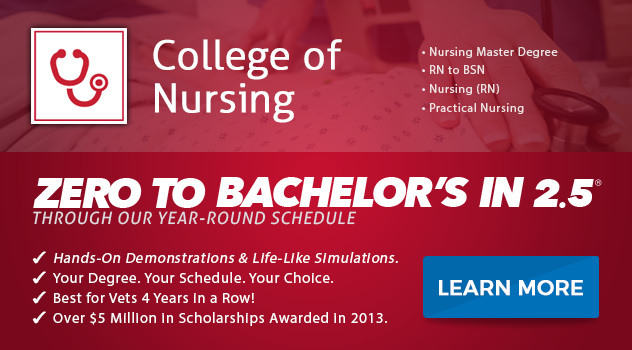
RN vs. BSN Degrees: What's The Real Difference, Anyway?
Some people stumble into the nursing field and find they love healthcare. Others have had a family member hospitalized and observed the incredible impact a great nurse can make. Many individuals grow up knowing they want to help people. Nursing is an appealing choice because you could become a registered nurse (RN) in as little as eighteen months. There are many paths to becoming a nurse, and just as many types of nurses. The industry standard of expected education for a full-time, professional nurse is a Bachelor of Science in Nursing (BSN) degree. Read on to find out the real difference between becoming an RN versus a BSN.
Registered Nursing: Role & Requirements
RN is a distinction that indicates an individual has completed an educational program and passed the National Council Licensure Examination for Registered Nurses (NCLEX-RN). Basic educational requirements to become an RN, are a nursing associate degree, or completion of an accredited nursing education program.
Program curriculum includes classes in chemistry, physiology, biology, math, and written communication. After completion, and passing of the test, entry level RNs are qualified to work in hospitals, clinics, nursing care facilities, schools, and correctional facilities, the military and other types of healthcare facilities.
According to the Bureau of Labor Statistics, RN employment is the largest healthcare occupation. The growth in this healthcare field is based on a variety of factors, including a growing emphasis on preventive care, an increase in some chronic conditions, such as obesity and diabetes, and the aging population of baby boomers. RNs are responsible for classic nursing duties such as:
- Managing and delivering medicine and treatment
- Recording medical conditions and symptoms
- Working and monitoring medical equipment
- Working in conjunction with other medical professionals
- Educating patients about their illness or injury and how to manage it
- Helping to perform diagnostic tests and evaluate results
- Providing guidance and emotional support to both the patient and their family members
Bachelor of Science in Nursing: Role & Requirements
A Bachelor of Science in Nursing (BSN) involves completion of a four-year program, including classes in nursing, physiology, nutrition, anatomy, biology, microbiology, and additional coursework in liberal arts, communication, leadership, the physical and social sciences, and critical thinking. A BSN normally provides students with extra hands-on clinical experiences in non-hospital venues. Students that graduate with a BSN are still required to complete the NCLEX-RN exam to become licensed and practice as an RN.
Currently, healthcare is shifting from inpatient hospital care to community-focused primary and preventative healthcare. BSNs graduate with greater knowledge of health disease management and prevention, health promotion, and risk reduction for individuals, groups, and communities.
Community-based health care programs require RNs to have education and experience in:
- Clinical decision making
- Supervision of support personnel and aides
- Case management
- Health care resources
- Patient education regarding treatment, procedures, and adoption of wholesome lifestyles
Having a BSN degree could provide more opportunities and an increasing number of employers are requiring a BSN. The higher degree also expands a registered nurse’s marketability to various clinical job positions, non-hospital opportunities, and nursing positions that offer lower impact than working in a hospital. It is a step closer to a master's degree or professional certification in nursing specialty areas.
To have someone support your dreams feels amazing ... #andimoff #ecpi #rn rastageek you tha… http://t.co/rUohAu2Y9Q
— Freddie (@_Eyesz_) August 26, 2014
Earning a RN to BSN Degree
Research indicates that increasing numbers of health care employers are urging their existing staff to pursue an advanced degree. Many nursing associations are advocating for BSN mandates, including the American Nurses Association (ANA) where 85% of the leaders voted for a “BSN in Ten” resolution. Such a mandate would require all RNs to earn their BSN within ten years. Some schools, such as ECPI University’s College of Nursing, offer accelerated RN to BSN programs for students desiring to become baccalaureate-prepared, registered professional nurse graduates as soon as possible. Contact our admissions department today—it could be the Best Decision You Ever Make!
DISCLAIMER – ECPI University makes no claim, warranty or guarantee as to actual employability or earning potential to current, past or future students or graduates of any educational program we offer. The ECPI University website is published for informational purposes only. Every effort is made to ensure the accuracy of information contained on the ECPI.edu domain; however, no warranty of accuracy is made. No contractual rights, either expressed or implied, are created by its content.
For more information about ECPI University or any of our programs click here: http://www.ecpi.edu/ or http://ow.ly/Ca1ya.



